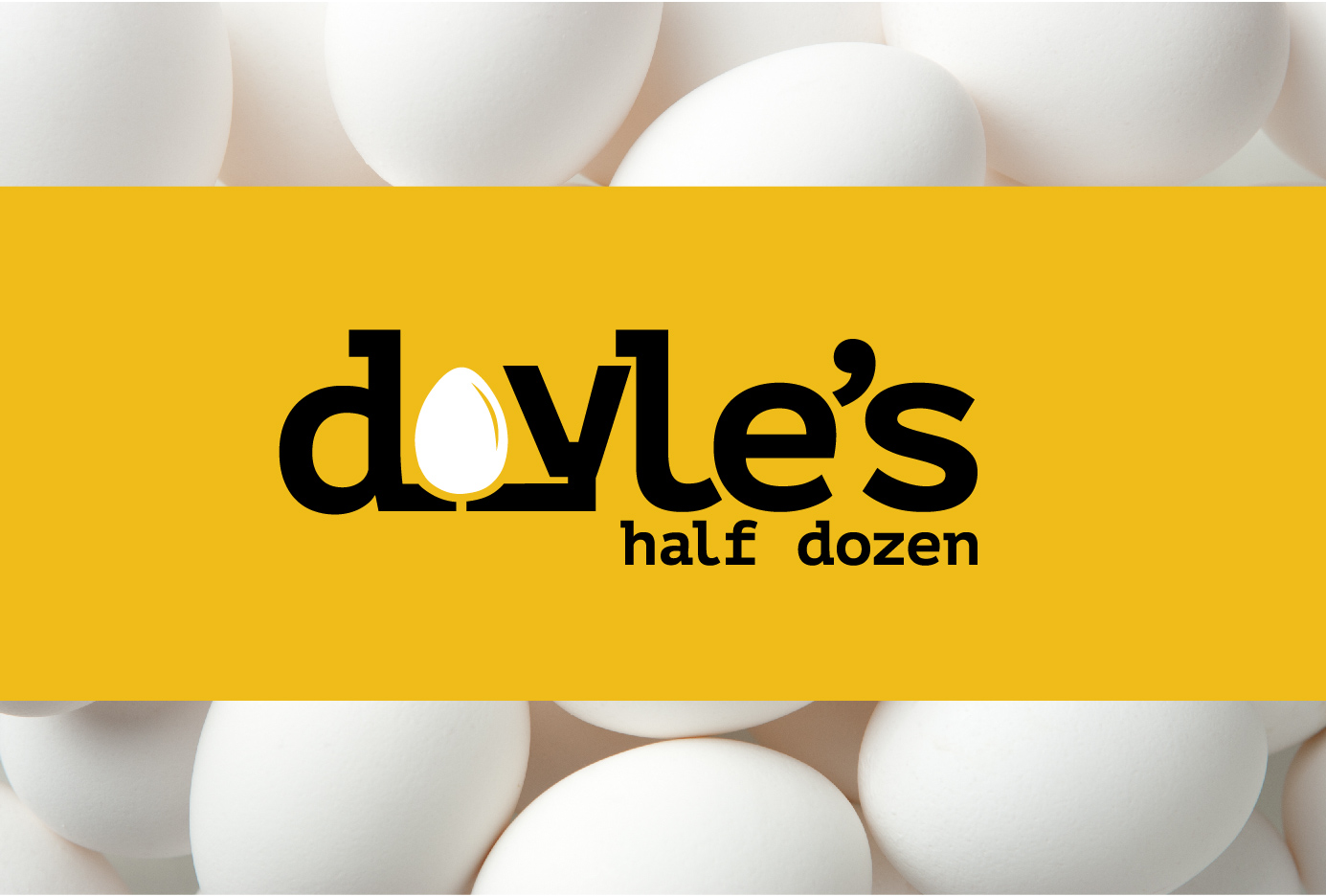
by Chris Doyle | Jul 5, 2019
Greetings!
We just celebrated Independence Day. Americans everywhere
took time to enjoy the freedoms we have in our country, spent with family,
friends, food, fun and fireworks.
There were parades, observances of military appreciation,
patriotic musical performances and reflections of our nation’s history.
I enjoyed July 4 along with my fellow patriots.
Earlier this week, I heard a comment mentioning that America
was founded on slavery. It bothered me. I thought it was not accurate and could
lead to a misrepresentation of the founding of our country.
I decided to use this week’s Doyle’s Half Dozen to offer an
historical analysis as well as how best to respond when the topic of America
and the practice of slavery is discussed.
1. Many of the Founders
opposed slavery
I found an editorial by John Gutekunst titled “The Founders thought slavery would die on its own” as a good source.
Gutekunst pointed out that many of the Founders were against
slavery. He quoted John Adams who said slavery was “a foul contagion in the
human character.” Benjamin Franklin said, “Slavery is… an atrocious debasement
of human nature.”
George Washington once was a slave owner, but he offered
them freedom. He also observed other actions to promote and offer freedom to
slaves, and he said, “There is not a man living who wishes more sincerely than
I do, to see a plan adopted for the abolition of it (slavery).” Later in life,
Washington said his biggest regret was that he and the other founders did not
abolish slavery once and for all.
And there are others who outright opposed or at least admitted
slavery was an inhumane practice.
2. Slavery was
progressively diminished
To reiterate, I am directly responding to the popular belief that America was founded on slavery. Consider the fact that slavery existed prior to the founding of the United States, especially in Europe. England, France, Spain and Portugal practiced slavery, as well as other countries.
I bring this up not to excuse early Americans but to clarify
the place slavery has in world history. I would speculate that the unfortunate popularity
of slavery across the globe caused insensitivity to even some who opposed
slavery, which hindered immediate action to abolish slavery entirely.
“Perhaps the best way to
describe the Founders is they accepted slavery as a matter of convenience,”
Gutekunst wrote. “They were trying to forge a coalition to fight the British,
and then they were trying to turn these former colonies into something
resembling a nation. They had to make negotiated compromises. They accepted
slavery because that’s what was needed to achieve a greater end.”
It is unfortunate that the
founders did not take a more aggressive approach, but their actions do not outright
support America being founded on slavery, rather a tolerance in order to become
a nation.
However, legislation did pass to discourage slavery. Eight
of the original 13 colonies outlawed slavery by 1776. The Northwest Ordinance
of 1787 made it illegal for slavery to be expanded in new territories. Congress
actually hindered slave states from having full representation in the federal
government.
As Gutekunst wrote, the Founders appeared to believe slavery would die out on its own. Even though this approach did not bring immediate success, it hardly supports the view of America being founded on slavery.
3. Cotton industry
hindered abolishment
Slavery began to increase after the cotton gin was invented
in 1793, 17 years after the U.S. was founded. This is where abolishment took a
wrong turn.
Those who hype up America being founded on slavery would
have its strongest argument at this point of history. For 87 years, slavery did
flourish in our country, and this is definitely a black mark on American
history.
4. Civil rights
leaders support founding documents
“Though arguments could be
made that the Founders made too many compromises, their overall project was to
set anti-slavery principles in place so that they could be enforced at some
point in the future,” wrote
Michael Sabo of The Heritage Foundation.
One of the bigger support aspects of the Declaration of Independence and the U.S. Constitution being anti-slavery is how historic civil rights leaders Frederick Douglas and Martin Luther King, Jr. praised the writing of both documents.
Douglas called the Constitution “a glorious liberty
document.” King said both the Declaration and the Constitution had “magnificent
words,” and in his famous “I Have a Dream” speech, he quoted the Constitution saying
everybody would have unalienable rights of life, liberty and the pursuit of
happiness.
5. Be factual and
sensitive
As mentioned, it is shameful when reflecting on how slavery was practiced in America.
But from the evidence I presented, instead of thinking that
America was founded on slavery, consider how the founders promoted freedom and
not slavery, which eventually came to an end.
To those who hold strong feelings about the practice of
slavery being a part of American history and believe slavery is a founding
element of this country, I share your view that freedom is for all people. But
founding documents have also been used to gain freedom for all, proving the
Founders were instrumental in the end of slavery.
6. The greater
message
As a Christian, I know how great the Gospel message of Jesus
Christ is. The Gospel is reflected throughout the Bible. Many Bible characters
demonstrate what Jesus did once and for all, providing the ultimate freedom
from sin and death.
And the Gospel can be presented even when discussing the
Founders of America. I believe God intervened through the Founders—many were
professing Christians and many were not. The Founders fell short, even though
intentions to end slavery were good.
Just like God provided freedom to the Israelites from their
slavery in Egypt, He provided freedom to slaves in America.
And just like He can provide freedom from the physical
practice of slavery, God can provide freedom from sin to anyone who will
believe in Jesus Christ.
“But thanks be to God that though you
were slaves of sin, you became obedient from the heart to that form of
teaching to which you were committed, and having been freed from sin, you
became slaves of righteousness” (Rom. 6:17-18).

by Michael Foust | Jul 5, 2019
The movie ‘Spider-Man: Far From Home’ has less violence and language than most Marvel films but still has a few scenes that may give parents pause.
Peter Parker is an average-looking high school sophomore who has the power to save the world from the latest evil villain.
Yet all he can think about is his crush, MJ.
As Spider-Man, he is as brave as a lion. As Peter Parker,
though, he is as scared as a mouse—especially around her.
Perhaps a class trip to Europe will give him courage. He and
his friends will tour Venice, Prague and Paris. They’ll see the sites. They’ll
learn the history. They’ll escape all their worries from home.
But nothing is ever easy for Peter Parker. A water monster
attacks Venice. Parker helps save the day, but then another villain, made of
fire, descends upon Prague.
Meanwhile, Avengers boss Nick Fury is trying to persuade
Parker to take on a larger role in the superhero realm.
And all Parker wants to do is ask MJ out on a date.
The movie Spider-Man:
Far From Home (PG-13) opens in theaters this weekend, picking up where Avengers: Endgame ended and continuing
the new Spider-Man saga begun by 2017’s Homecoming.
It stars Tom Holland as Parker/Spider-Man, Zendaya as MJ, Marisa Tomei as
Parker’s aunt and Samuel L. Jackson as Fury.
In Far From Home,
the world is mourning the death of Stark/Iron Man and Natasha Romanoff/ Black
Widow, and the retirement of Steve Rogers/Captain America.
“What is it like to take over for Tony Stark?” a reporter
asks Parker/Spider-Man, who has no desire to succeed the legendary hero.
A new superhero named “Mysterio” (Jake Gyllenhaal) then
arrives on the scene to help defeat Hydron and the other villains, leading
Parker to wonder: Is Mysterio the next Tony Stark?
Warning:
minor/moderate spoilers!
(Scale key:
none, minimal, moderate, extreme)
Violence/Disturbing
Moderate. Far From
Home has less violence and disturbing content than did Homecoming or most other Marvel movies, even though it still has
plenty of stuff blowing up or getting destroyed. The villains—part of a group
of bad guys called the Elementals—will give only the most sensitive children
and tweens nightmares.
Drones shoot guns. Hand-to-hand combat scenes are virtually
nonexistent.
Sexuality/Sensuality/Nudity
Minimal/moderate. The film’s most problematic moment
involves an adult female employee telling Parker (who is 16) to take his
clothes off in order to put on a new costume. It’s an odd moment. With Parker’s
pants down (he’s still wearing underwear), a male classmate walks in. He makes
a joke about Parker wanting to “hook up” with a random “European chick.”
Later, Happy Hogan references Parker renting an “adult”
movie in a hotel. Parker takes off his shirt and puts on his costume when MJ’s
back is turned.
Romance is a major theme of the film. A couple share a kiss
at the end.
Coarse
Language
Moderate. OMG (6), h-ll (4), a– (3), s–t (2), d—wad (1),
b–ch (1), d–n (1) and one unfinished f-word. It’s less language than most
Marvel films. A classmate flips off Peter.
Other
Positive Elements
Peter may be unsure about his future role, but he still puts
his life on the line to save others.
He says “thank God” twice. Perhaps it’s just an expression,
but it carries meaning among some moviegoers.
The humor, minus the caveats already discussed, is
family-friendly and truly funny.
At a bar, Peter drinks lemonade.
Other Stuff
You Might Want To Know
Characters drink alcohol at a bar.
The movie contains mid-credit and post-credit scenes. Both
are critical to the future of the
Spider-Man and Marvel series.
Life Lessons
Experience
brings wisdom: Peter
Parker seemingly proves he’s not ready for prime time when he misuses a weapon
and nearly kills a classmate who is interested in MJ (he launched the weapon on
accident). Fury becomes, well, furious. Yet Parker learns from his mistakes and
matures.
Mistakes can
be overcome: Parker
is distraught after he makes the biggest mistake of his young superhero career.
But he gets a second chance and fixes it.
Appearances
can be deceiving:
A major plot-spoiler is behind this lesson, but it’s significant.
Worldview/Application
Far From
Home
sparks a series of questions worth a discussion on the drive home. Such as:
What’s real and worth pursuing in this world? What only seems real… and should be rejected? Christ and His Kingdom are the
source of true goodness, peace and joy, yet there are literally millions of
other things in our world—money, sex and fame, among them—that promise joy… but
deliver exactly the opposite. They may appear innocent on the surface, but
they’re not.
What Works
The action. The plot. The humor. The toned-down violence and
language, which is welcomed.
What Doesn’t
A joke about an adult woman hooking up with a 16-year-old.
Discussion
Questions
1. How do you know what is real and worth pursuing in life?
2. What is required for wisdom? Can a young person have wisdom?
Can a young person be mature?
3. Why did Peter fail? What was the key to him overcoming
his mistakes?
4. What would you want your last words to be? Is there
something you would confess in your finals seconds, as several characters did?
Entertainment rating: 4 out of 5
stars. Family-friendly rating: 3 out
of 5 stars.
Rated PG-13
for sci-fi action violence, some language and brief suggestive comments.

by Ryan Smith | Jul 4, 2019
The Christian
movie industry has often been maligned, and in many cases justifiably so. There
are, however, those seeking to up the industry game and provide Christ-based
films via major market media with enhanced watch-ability and content.
When you think of Christian movies, you may think of Kirk Cameron, crying fathers or the ill-advised Nicholas Cage version of Left Behind. Transition Studios is out to change that paradigm with the documentary, American Gospel: Christ Alone.
American Gospel seeks to accomplish numerous goals and does so quite successfully. First and foremost, the movie presents the Gospel of Jesus as central to the identity of the church. The film is exceptionally creative and straightforward in outlining what the Gospel is and why it is sufficient.
Having established this truth, the film moves forward to expose many Westernized ideas that what God desires for us is the Gospel plus something else – as if the Gospel itself is insufficient.
Stemming from this dangerous heresy are many strands of what has come to be known as the “Prosperity Gospel.” The film explores the journeys of various individuals who have bought into the “Gospel plus” mentality and fallen to the siren song of the Prosperity Gospel itself.
Featured among
these stories are those who have struggled with the idea of a good God in the
face of a broken world. For example, a seemingly healthy atheist couple
encounters an incurable disease. A man who comes to faith almost dies because
he believes God should heal him. A man with a broken body seeks physical
healing and instead finds restoration for his soul.
Personal experience is placed alongside doctrinal fidelity and Scriptural verification of what the Gospel of the Bible truly is.
The most compelling highlight of the film is the story of Costi Hinn, nephew of renowned faith-healer and Prosperity Gospel proponent Benny Hinn. Costi tells of his active service to his uncle’s ministry and the difficulties he began to experience, as he compared what he saw in his daily involvement with Biblical truth.
American Gospel does an excellent job of warning about false teachers while still upholding the truth of the Gospel as beautiful and supreme. It is not a hit-piece on Prosperity Gospel preachers per se, but does help identify many vital players, phrases and ideas that easily infiltrate Christian bookstores, studies, pulpits, and churches.
The film is
available on iTunes, Amazon, Vimeo, YouTube, and Google Play. More information
is available at www.americangospelfilm.com.

by Emily Howsden | Jul 1, 2019
As the Fourth of July nears, something on my mind lately is the confusion of worshiping one’s country vs. worshiping the God of the universe who has given us true freedom from our sins.
I’m not here to say that we can’t be a patriot. We can be patriotic, as we respect our veterans and be thankful for earthly freedom. In fact, I myself am from a long line of veterans, and I am extremely proud of their sacrifice and the freedoms for which they fought. I would consider myself pretty patriotic.
I am here, however, to ask that we take a look into our hearts. Are we unwittingly worshiping our country more than openly worshiping our Lord and Savior?
In every Baptist church I’ve ever attended, the Fourth of July service is a bit of a production. The military songs are sung; there is recognition of veterans, and many patriotic songs are sung. However, something that I’ve noticed in my adulthood and found issue with is the outright worship of one’s country in such services.
For example, think about the song, “God Bless America.” It is not really a worship song.
The first two commandments of the 10 commandments say, “(1)You shall have no other gods before me, (2)You shall not make yourself an image in the form of anything in heaven above or on the earth beneath or In the waters below.” (NIV)
I’m not here to say that I haven’t ever had an earthy idol that has caused me to break either of these commandments. Admittedly, I’ve put things before the Lord in my sinful nature.
What I’m asking you is, have we mistakenly made our country your No. 1 God? Have we therefore made our country an idol?
In your loyalty to country, have you forgotten that Jesus calls us to be a friend to the widow, the orphan, the oppressed?
I want you to read this passage of Scripture closely,
For the LORD your God is God of gods and Lord of lords, the great, mighty, and awesome God, showing no partiality and accepting no bribe. He executes justice for the fatherless and widow, and He loves the foreigner, giving him food and clothing. So you also must love the foreigner, since you yourselves were foreigners in the land of Egypt.
Now read the rest of the passage carefully…
“You are to fear the LORD your God and serve Him. Hold fast to Him and take your oaths in His name. He is your praise and He is your God, who has done for you these great and awesome wonders your eyes have seen” (Deut. 10:17-21).
What I’m challenging you to do today and this Fourth of July, O patriot, is to examine the nature and zeal in which you celebrate and serve our country vs. the nature and zeal in which you celebrate and serve our God?
Please hear me out. I’m not saying we can’t be patriotic, or to be patriotic is a sin. What I’m saying is, where do your priorities and passions lie?
Do you pledge your allegiance to your country and flag, or as a believer in Christ do you pledge your allegiance, above anything else, to the Creator of the seas and the skies and all of his commands?

by Chris Doyle | Jun 28, 2019
Greetings!
This week’s DHD features six articles written by Joe Carter
who serves as communications specialist for the Southern Baptists’ Ethics and
Religious Liberty Commission. I enjoy
Joe’s writing style. He has an objective approach to whatever his topic may be,
and many of his topics are controversial.
Objectivity is a key element for me when it comes to writing
style. It’s important to be able to answer respectfully those who may oppose
you, but also present different aspects reasonably. There’s no “If you don’t
agree, you’re a jerk” manner in how Joe writes, and he is very thorough in
presenting his arguments.
Not all six of these Carter articles present debates. Some
are “How to,” and one is even a humble admittance by Joe, which is the first
one I mention.
1. “Confessions of a
(Recovering) Social Media Fool”
I thought I’d start off making Joe likeable. You should read
“Confessions
of a (Recovering) Social Media Fool” because it is so relatable, and you
can appreciate Joe’s willingness to admit he started 2019 committing to “make
an effort to tame my tongue (James 3:7-8)—especially on social media.”
His commentary on Matt. 7:1 “Judge not that you be not judged” is great, especially since he
quotes one of my favorite bloggers, Kevin DeYoung.
2. “How Should a
Christian Negotiate a Deal?”
This
article is a response to an inquiry. It’s good sound advice for a Christian
businessperson. I really appreciate his comments under “3. We have obligations
to unseen neighbors,” especially the following quote:
“If vendors fail to deliver
because of incompetence or lack of ethics, they should be allowed a good-faith
effort to rectify the situation. If they fail to do so, though, we have a moral
obligation to prevent them from cheating others.”
3. “How to Work With People Who Are Smarter Than You”
I enjoy reading unique biblical topics, and this
one qualifies. I’ve never thought about ranking the Apostles’ intelligence,
but Joe’s take is interesting. I like how he compares Peter to Paul.
But along with IQ analogies, Joe gives advice to people like
me who find themselves in a work setting being inferior in the smarts
department. It’s a great practical read.
4. “David Platt
Models How to Pray for a President”
Joe’s commentary on David
Platt praying over President Trump is one of his best. It is written in Joe’s
classic fashion—easy to read with subheads, sharing about a recent major topic
among Evangelicals.
Platt reminded us that we
pray for authorities not to protect them from criticism but so that we as
Christians “may live peaceful and quiet
lives in all godliness and holiness” (1 Tim. 2:2). In doing so, he provided us with a model for how we should
all pray for our president.
5. “In Defense of Pro-Life Incrementalism”
Now we are really into the
controversial stuff. Joe doesn’t hold back, but he also explains a rather
confusing topic in a way that is easy to understand, regarding a division among
Evangelicals when it comes to the Sanctity of Life.
Please read Joe’s article on Pro-Life
Incrementalism, especially if you are confused or on the fence regarding
the abortion abolitionist view. Joe separates the two views as “Incrementalism”
and “Immediatism.”
This was a hot topic in
Oklahoma a few months ago.
6. The FAQs: What Christians Should Know About
Vaccines
I’m not sure which topic is hotter—abolitionism or anti-vaccines.
Both issues involve some passionate viewpoints.
Once again, Joe lays it all out in great fashion in his
article about how
Christians should view vaccinations.
Joe also quotes a DHD favorite, Al Mohler:
“I am very pro-vaccine,”
Mohler said. “But I’m also pro-parental rights, and I want to be an ardent
defender of religious liberty. In this kind of situation, it is so complicated
that Christians of goodwill, and we need to note this, can come to different
conclusions about vaccines, specific vaccines, and in specific cases even
regarding specific children.”
Mohler is sympathetic to different sides in his viewpoint.
Joe follows up with four factors that Christians need to consider regarding vaccination.

by Michael Foust | Jun 28, 2019
The film Yesterday opens this weekend, telling the story of a singer who wakes up in a world where the Beatles never existed.
Jack Malik is a talented musician who has a great voice and
a flair for playing the guitar.
So far, though, few people have noticed. His late-night gigs
draw merely a smattering of applause. His appearance at a music festival
attracts a crowd of about 20—many of them friends.
“I can’t do this anymore,” he tells his manager and friend,
Ellie. “… This is my last gig.”
Then a miracle happens, seemingly straight out of a science
fiction novel.
Jack is hit by a bus at the exact moment Earth experiences a
brief worldwide blackout. He survives the crash but soon discovers everyone has
changed.
For starters, no one remembers the Beatles.
“When did you write that?” Ellie asks him after he sings a
tune by the ground-breaking group.
“I didn’t write it,” Jack says. “Paul McCartney wrote it.”
“Who?” she asks.
Jack searches his album collection for his Beatles records…
and comes up empty. He types “Beatles” into Google… and finds pictures of bugs.
Suddenly, Jack faces a dilemma: If no one on Earth can
remember Beatles songs, could he sing them and claim them as his own?
The film Yesterday
(PG-13) opens this weekend, telling the story of a man who supposedly becomes
the world’s most talented musician by singing songs written by someone else. It
stars Himesh Patel as Jack, Lily James (Cinderella)
as Ellie, singer Ed Sheeran as himself, and Kate McKinnon as his new manager.
The film is part-science fiction and part-comedy, mixed with
a parable-type plot about honesty, money, fame and love.
At first, Jack is incredulous about his situation. But once
he becomes a superstar, the weight of his fame becomes unbearable. The studio
slaps a label on his album stating, “All songs, music and lyrics by Jack Malik
only.”
“I feel like I’ve become the definition of living a lie,” he
says.
Warning:
minor/moderate spoilers!
(Scale key:
none, minimal, moderate, extreme)
Violence/Disturbing
None.
Sexuality/Sensuality/Nudity
Minimal/moderate. Jack and Ellie have a budding romance,
although it began as “just friends.” We see them kiss passionately one night
but Ellie (still clothed) walks out of the bedroom, not wanting a one-night
stand. “It’s not for me.” Later, though, they presumably do sleep together (We
see them kiss before the scene cuts away). Someone makes jokes about them
“making sweet love” (they weren’t at the time). Ellie wears several low-cut
dresses. Sheeran’s song Shape of You
is heard.
Coarse
Language
Moderate. Misuse of “Christ” (5), d–n (4), misuse of “God”
(3), OMG (3), GD (2), s–t (2), h-ll (2), a– (1), misuse of “Jesus” (1). We
also hear the British word “bloody” (4).
Other
Positive Elements
Jack comes from a stable, loving home. His parents support
his musical ambitions. Ellie refuses to sleep with Jack on a one-night stand
(although they later sleep together before marriage). Jack’s friends care for
him when he is discouraged; they buy him a new guitar.
Other Stuff
You Might Want To Know
Jack, Ellie and their friends drink alcohol.
Life Lessons
Sin doesn’t
bring lasting happiness: Jack achieves his dream of becoming a famous musician yet
cannot enjoy it because of his lies.
Your sins
will find you out: I
won’t ruin the ending, but Jack isn’t the only person on the planet who
remembers the Beatles.
Fame and
money aren’t the key to joy: Jack discovers this in a big way.
Confession
is good for the soul: Jack wants to tell someone his secret. Finally, he does.
Worldview/Application
Yesterday implies God had a role in the
science fiction-type plot.
“I think the accident was a message from God,” Ellie tells
Jack after he gets hit by a bus. “Yeah, He was very angry.”
“You think me getting hit by the bus was God’s way of
telling me not to go back to teaching?” he asks.
“Exactly!” she responds.
And before the accident, the two have a back-and-forth
conversation about miracles.
“It would take a miracle (to become a successful singer),”
he says.
“Miracles happen,” Ellie says.
The film implies that God was testing Jack to see if he
would do the right thing.
Yesterday can spark a deep discussion about
morality: Would we lie if we knew we’d never get caught? What is our motivation
for obeying God’s law? Can a life built on sin bring true joy?
What Works
The plot. The acting. The ending. Good, original movies are
rare in Hollywood. This one fits both marks.
What Doesn’t
Kudos to the film’s writers for having Ellie reject a
one-night stand. That message would have been even more powerful if she had
waited until after they were married.
Discussion
Questions
1. If you woke up in a world like Jack’s world, what would
you do? Did he do the right thing?
2. Is our sin always discovered, sooner or later (Numbers
32:23)? Name famous examples of that from history. Are there any examples in
your own life?
3. Does money and fame bring joy? Why or why not?
4. Why was Jack unable to enjoy his fame?
Entertainment rating: 4 out of 5
stars. Family-friendly rating: 3 out
of 5 stars.
Rated PG-13
for suggestive content and language.




